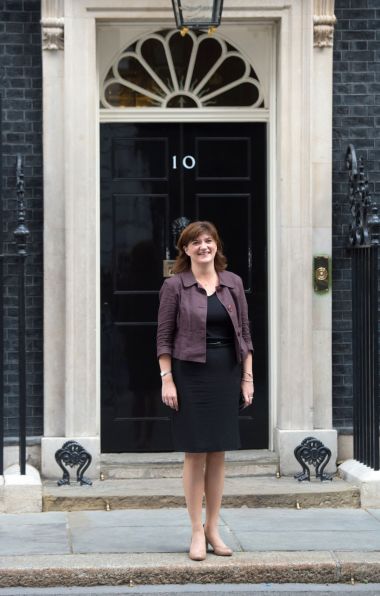Church of England: We must not reject all religion from schools

The Church of England has slammed the drive to promote "British values" in UK schools, saying the government's "narrow" definition is "failing to prepare young people for the realities of life".
Chief education officer Nigel Genders said in a blog that the Church "wholeheartedly support[s] the idea of schools being required to promote the values of tolerance and respect for those coming at things from a different perspective.
"However, 'British Values' cannot be allowed to become a test or an assessment of whether somebody in a community is 'safe' or 'loyal'," he continued.
"Indeed, the nature of 'British values' requires a much deeper public conversation around the country than has been possible over the summer. As church schools – a major stakeholder in the system – we need to find a way to ensure that the lived experience of the children and families in our schools is one that helps to build a stronger sense of the way in which shared values create stronger communities."
Hed said rejecting religion in schools would mean a failure to "prepare young people for the realities of life in a modern and globalised world."
"Church schools are not, and never have been, about indoctrination or recruitment," he added, noting that it was the Church that began mass education in the 1800s, long before the government began to do the same.
Genders' comments follow those made by the Archbishop of Canterbury, who last week gave the keynote address at a conference for Birmingham church schools.
Archbishop Welby said the way in which the Trojan Horse scandal – in which an alleged plot by Islamic extremists to take over a group of schools in Birmingham and promote fundamentalist ideology was discovered – has been discussed "has made it sound as if schools with a religious character are a problem."
"That's simply not true and that fact seems to need a lot of repeating: no church schools or faith-based schools were caught up in 'Trojan Horse'. We are the solution, not the problem," Welby said.
"Good religious education is so important in all schools, because it builds understanding and that in turn helps build cohesion. Across this country we desperately need to understand one another better and we cannot do that without the contribution there is to be made by excellent RE. Trying to pretend religion doesn't matter has a very different – and damaging – effect."
The Church of England recently submitted its views to the Government's Department of Education consultation about the proposed new standards for independent schools.
The document states a concern that the 'British values' heralded by Education Secretary Nicky Morgan are "narrowly focussed" and should be amended to include the Christian commandment to love your neighbour, the importance of dissent and a commitment to the common good.
It also warns that the 'British values' test to rate schools "would be a negative and divisive approach, and should not be how we define our national identity."
Instead, there should be a greater emphasis on spiritual development, the Church has suggested, and better resourcing for religious education.
However, Stephen Evans, National Secular Society campaigns manager, has said that the Church's comments are unfounded.
"It's rather divisive in itself for the Church of England to insist that the secular ethic of reciprocity should be promoted in schools as the 'Christian commandment' to love your neighbour," Evans said in a statement.
"It's not as if Christians have a monopoly on morality and the truth is that the 'Golden Rule' is a universal value shared by people of all faiths and none – and is already firmly embodied in the ethos of schools up and down the country."
He also accused the Church of using state schools as "the primary method of recruiting the next generation of Anglicans."











